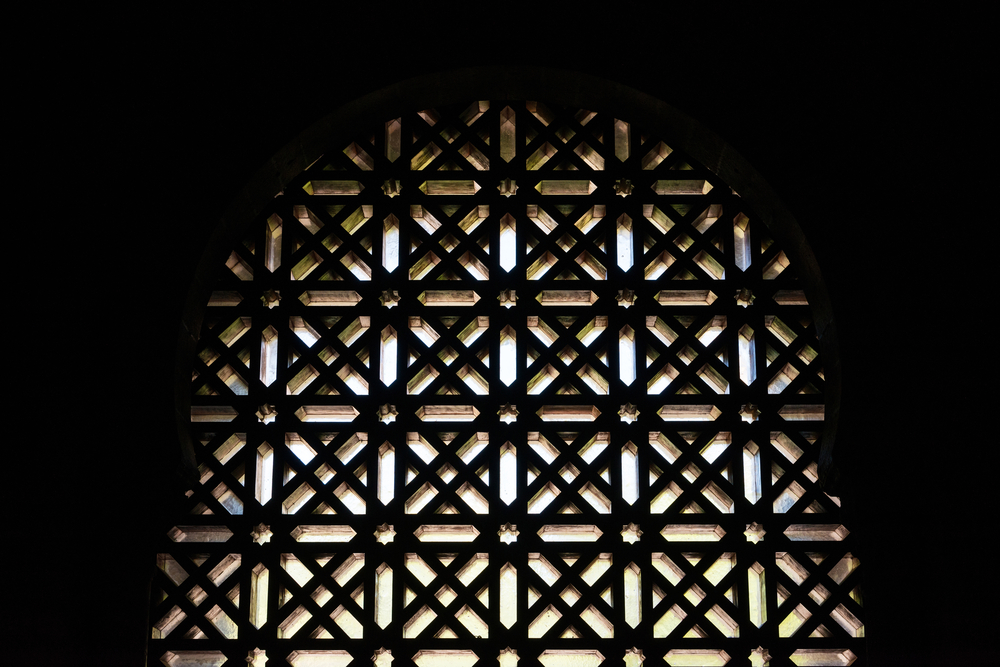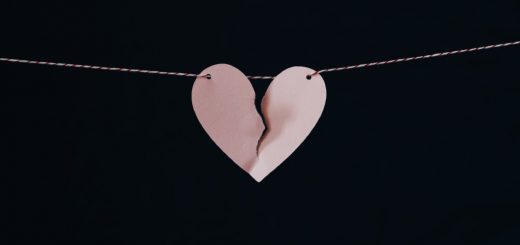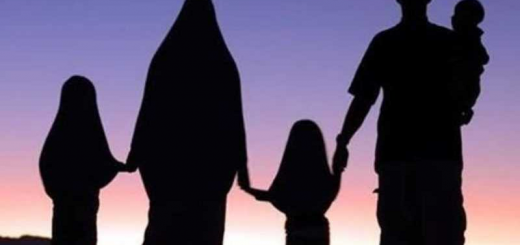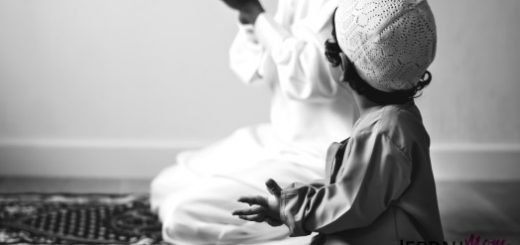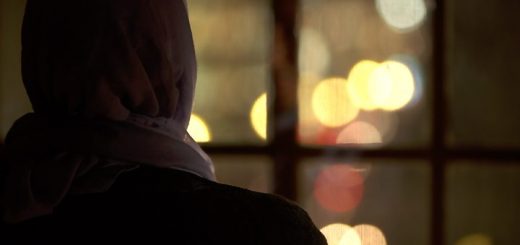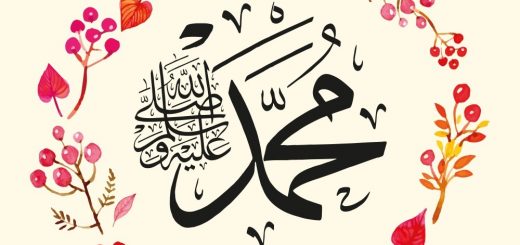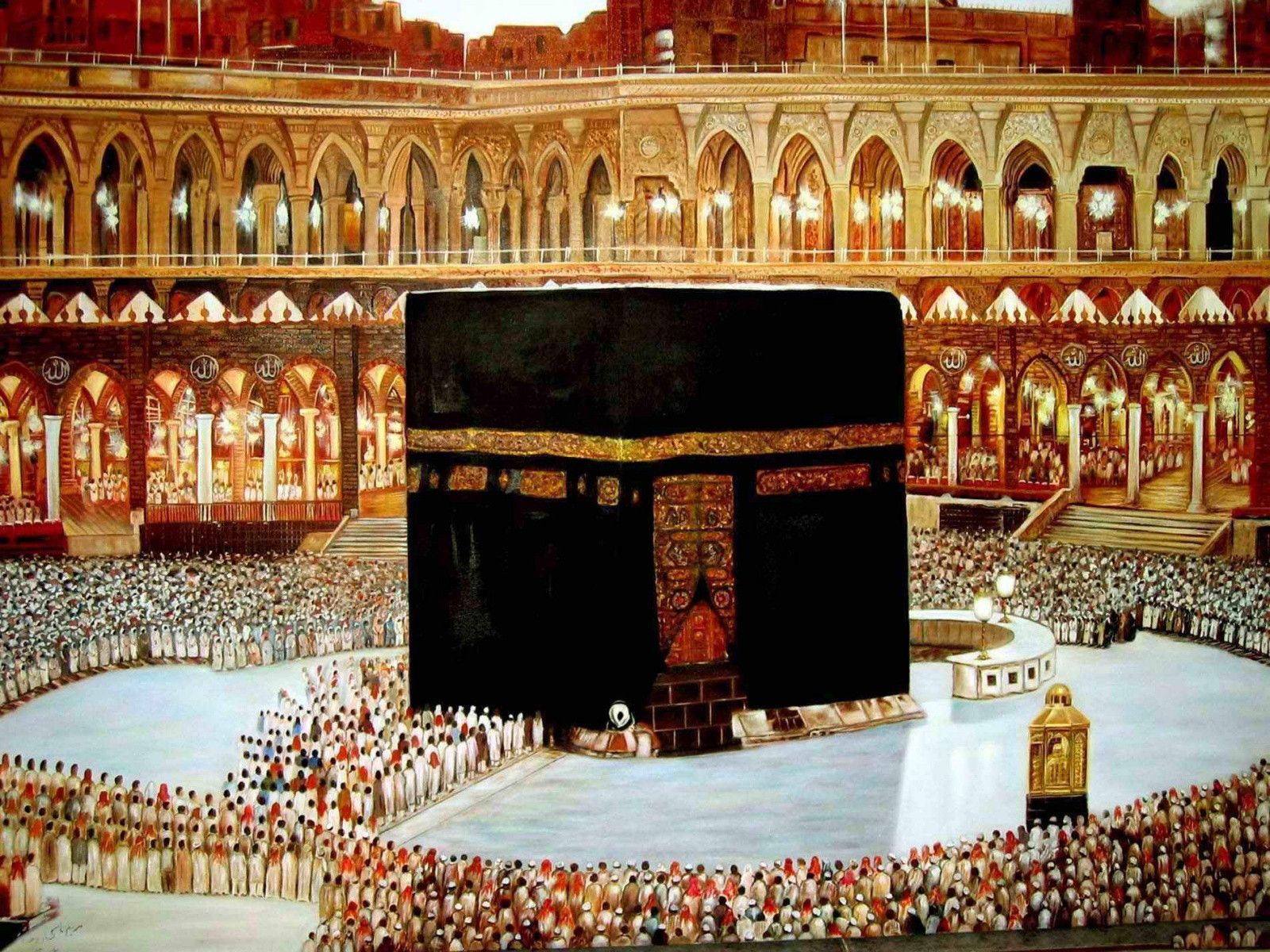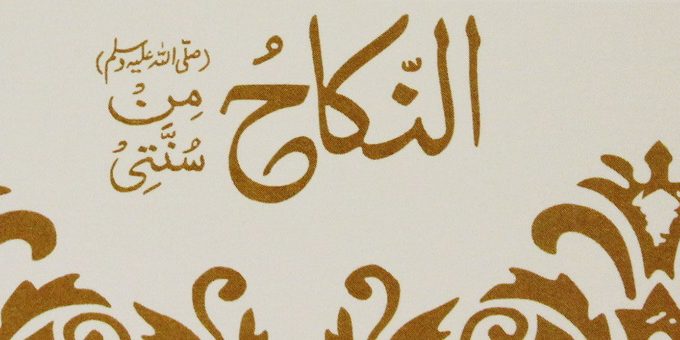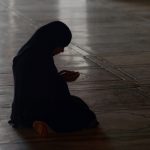QUESTION:
What do the scholars of the Sacred Law state regarding a father kissing his young, beautiful daughter on her lips? Will hurmat-e musāharat [marriage forbiddance] be proven in doing so? Whereas the father says that he did not kiss his daughter out of lustful desire. Similarly, what will be the ruling if he kisses his daughter on her cheek? Is it permissible for a father to kiss his daughter? Kindly elaborate upon the issue of hurmat-e musāharat.
Questioner: Qasim from UK
ANSWER:
بسم اللہ الرحمن الرحیم
الجواب بعون الملک الوھاب اللھم ھدایۃ الحق والصواب
Hurmat-e-Musāharat will be necessitated in the case where a father kisses his young, beautiful daughter on her lips, even if he says that there was no lustful desire. His clarification will not be accepted, because mostly, kissing on the lips is associated with desire. The daughter being young and beautiful makes it more clear that lustful desire is present. Furthermore, in a foreign land where immodesty and nudity are at its peak, how will the sacred relationship of father and daughter remain protected from lustful desire? In this case, the mother of the girl is forbidden upon the man, forever. It is forbidden for him to have sexual relations with the mother. It is wājib [compulsory] for him to leave her [by informing her that he has separated from her or by giving her talāq (divorce)].
According to some scholars, the above-mentioned ruling also holds true for a father kissing his daughter on the cheek. However, if a person kissing his daughter on the cheek denies the presence of lustful desire, his clarification has to be accepted, and it will not be ruled as a cause of hurmat-e-musāharat. This is the outweighed and relied upon opinion according to us. It is permissible for a father to kiss his daughter’s cheek or forehead out of love and compassion. This is a kiss of compassion, and there is no problem in this. There are many Hadīths [Prophetic narrations] and Āthār [reports from the blessed companions] that support this.
It is mentioned in Radd al-Muhtar that forbiddance will be proven due to kissing on the lips. ‘Allāmah ibn ‘Abidīn al-Shāmī states,
“وَمِنْهُمْ مَنْ فَصَّلَ فِي الْقُبْلَةِ فَقَالَ إنْ كَانَتْ عَلَى الْفَمِ يُفْتَى بِالْحُرْمَةِ ، وَلَا يُصَدَّقُ أَنَّهُ بِلَا شَهْوَةٍ”
“And from them there are those that have mentioned a detailed difference in kissing [between kissing the lips and kissing other parts of the body] so he said, ‘If the kiss was upon the lips, a ruling for the necessitation of forbiddance will be given. The denial of the presence of any lustful desire will not be accepted.’”
[Radd al-Muhtār, vol. 4, pg. 118]
‘Allāmah ibn ‘Abidīn then mentioning the difference of opinion among the scholars regarding kissing other parts of the body states that the scholars differ over generally kissing of any part of the body. According to one opinion, doing this [kissing any other part of the body] necessitates forbiddance, and the clarification of the one doing it will not be listened to, as kissing, unrestrictedly, is an act usually done out of lustful desire. However according to another opinion, the denial of the presence of lustful desire will be accepted.”
He further states,
“وَقِيلَ بِالتَّفْصِيلِ بَيْنَ كَوْنِهِ عَلَى الرَّأْسِ وَالْجَبْهَةِ وَالْخَدِّ فَيُصَدَّقُ أَوْ عَلَى الْفَمِ فَلَا وَالْأَرْجَحُ هَذَا”
“It is stated that there is detailed difference between the kiss being on the head, forehead and cheek, such that he will be believed [if he denies the presence of any lustful desire in these three], and it being on the lips such that he will not be believed [if he denies the presence of any lustful desire in this]. This is the most preferred opinion.”
[Radd al-Muhtār, vol. 4, pg. 119]
He states further on with reference to Fayd,
“وَلَوْ قَبَّلَ وَلَمْ تَنْتَشِرْ آلَتُهُ وَقَالَ كَانَ عَنْ غَيْرِ شَهْوَةٍ يُصَدَّقُ وَقِيلَ لَا يُصَدَّقُ لَوْ قَبَّلَهَا عَلَى الْفَمِ وَبِهِ يُفْتَى”
“If he kissed [a woman] and did not get an erection and he says the kiss was without lustful desire it will be accepted. It is also said he will not be believed [in his denial of lustful desire] if he kissed her on the lips and the legal verdict is given upon this view.”
[Radd al-Muhtar, vol. 4, pg. 119]
It is mentioned in Bahār-e Sharī’at that if one kissed upon the lips this will absolutely necessitate hurmat-e musāharat, even if he says that there was no lustful desire. Similarly, if there was an erection experienced whilst kissing any bodily part, hurmat-e musāharat will be necessitated.
[Bahār-e Sharī’at, vol. 2, part 7, pg. 25]
Thus, we come to know that in kissing a bodily part [other than the lips], the statement of the one who kissed [in denial of the presence of lustful desire] will be accepted. But in the case of kissing the lips, even if the one doing it denies the presence of lustful desire, his statement will not be accepted.
Yes, if there is an explicitly clear indication present in the negation of lustful desire in the case of kissing the lips, then forbiddance will not be established.
There are four necessary conditions that need to be met in this case.
First: The woman must be from those close relatives with whom there is no chance of lustful desire, and towards whom only love and compassion normally exists, meaning daughter, granddaughter, mother, etc.
Second: The act of kissing must not take place in solitude. For example, a father or a son kisses [a woman] on her lips out of love or compassion, in front of the entire family. Similarly, if someone wanted to place a kiss on the forehead but accidentally did so on the lips.
Third: It should not be a passionate kiss. A passionate kiss is one in which involves in taking in both ones lips and pressing them [against the other person’s].
Fourth: When questioned later on about the kiss, he testifies that he did not kiss her out of lustful desire.
If these three conditions are fulfilled then this statement [mentioned as the fourth condition] will be accepted as these are clear explicit indicators upon the absence of lustful desire. Just as it is mentioned in Radd al-Muhtār that,
“حَرُمَتْ عَلَيْهِ امْرَأَتُهُ أَيْ يُفْتَى بِالْحُرْمَةِ إذَا سُئِلَ عَنْهَا وَلَا يُصَدَّقُ إذَا ادَّعَى عَدَمَ الشَّهْوَةِ إلَّا إذَا ظَهَرَ عَدَمُهَا بِقَرِينَةِ الْحَالِ”
“His wife will become forbidden upon him, that is the verdict of forbiddance will be given when he is asked and he will not be believed when he claims there was no lustful desire except if its absence becomes apparent by an indication of the state [in which the kiss took place].”
[Radd al-Muhtār, vol. 4, pg. 117]
It is also mentioned in al-Durr al-Mukhtār that,
“( قَبَّلَ أُمَّ امْرَأَتِهِ حَرُمَتْ عَلَيْهِ امْرَأَتُهُ مَا لَمْ يَظْهَرْ عَدَمُ الشَّهْوَةِ ) وَلَوْ عَلَى الْفَمِ۔۔ أَمَّا إذَا ظَهَرَ عَدَمُ الشَّهْوَةِ فَلَا تَحْرُمُ وَلَوْ كَانَتْ الْقُبْلَةُ عَلَى الْفَمِ”
“(If someone kissed his mother-in-law, his wife will become forbidden upon him as long as absence of lustful desire is not apparent) even if this is upon the lips. If the absence of lustful desire becomes apparent then forbiddance will not be established, even if the kiss was on the lips.”
[al-Durr al-Mukhtār with Radd al-Muhtār, vol. 4, pg. 117]
From this it has become known that if the father’s kissing his grown up daughter being without lustful desire is known through clear explicit evidence then the father’s denial [of lustful desire] will be necessarily accepted and forbiddance will not be established, even if the kiss was upon the lips. But it is necessary that there be clear explicit evidence, not that the difference between relatives and non-relatives be taken into consideration to say that the kissing of a near relative is kissing without lustful desire generally speaking and is only a kissing of compassion.
The first condition is necessary because lustful desire in close relations is mostly non-existent and in other than them it is mostly present. Just as is mentioned in Tabyīn al-Haqā’iq and other Hanafī texts,
“فَلَوْ أُمِرَتْ بِالسَّتْرِ عَنْ مَحَارِمِهَا لَحَرَجَتْ حَرَجًا عَظِيمًا وَلِأَنَّ الْحُرْمَةَ الْمُؤَبَّدَةَ تُقَلِّلُ الرَّغْبَةَ وَالشَّهْوَةَ فِيهَا بَلْ تُعْدِمُهُ بِخِلَافِ الْأَجَانِبِ”
“If she was commanded to veil herself from mahārim (those who are forever forbidden in marriage to her) it would be a great obstacle and also because being such a close relative who is forbidden in marriage reduces interest in that person and lustful desire in fact makes it non-existent as opposed to people who are unrelated.”
[Tabyīn al-Haqā’iq, vol. 4, pg. 20]
The second condition is necessary because secluding oneself with an unrelated woman [one that is not permanently forbidden in marriage] is prohibited for this reason that in comparison to public occurrence the fear of falling into lustful desire and fornication is greater. Thus kissing upon the lips in seclusion is mostly associated with lustful desire.
The third condition is clear because in a passionate kiss, that is taking the lips into the mouth and pressing them, there is a clear evidence upon the presence of lustful desire.
The fourth condition is necessary because even after kissing, admission of lustful desire is proof for prohibition for a Muftī or Qādī [judge], even if there was no desire at the time of kissing. Just as it is mentioned in al-Durr al-Mukhtār with its commentary Radd al-Mukhtār,
“وَفِي الْخُلَاصَةِ قِيلَ لَهُ مَا فَعَلْت بِأُمِّ امْرَأَتِك فَقَالَ جَامَعْتهَا تَثْبُتُ الْحُرْمَةُ ؛ وَلَا يُصَدَّقُ أَنَّهُ كَذِبٌ وَلَوْ هَازِلًا . أَيْ عِنْدَ الْقَاضِي أَمَّا بَيْنَهُ وَبَيْنَ اللَّهِ تَعَالَى إنْ كَانَ كَاذِبًا فِيمَا أَقَرَّ لَمْ تَثْبُتْ الْحُرْمَةُ”
“In al-Khulāsah, if it is said to him, ‘What did you do with the mother of your wife?’ and he says, ‘I had intercourse with her’, prohibition is established and his saying it was a lie or a joke will not be believed by the Qādī.”
[al-Durr al-Mukhtār with Radd al-Muhtār, vol. 4 pg. 121]
What remains is the kissing of the cheek and forehead. If there is lustful desire in such kissing then prohibition will be necessarily established, otherwise without lustful desire it will not. If a father kissed his grown up daughter [9 years old (lunar) or above] upon her cheek or a son kissed his mother upon her cheek then upon being asked he said it was without lustful desire, then he will be believed.
Just as it is mentioned in al-Muhīt al-Burhānī,
وإذا كان على الرأس أو على الذقن أو على الخد لا يفتى بالحرمة، إلا إذا ثبت أنه فعل بشهوة. ويصدق إن لم يكن بشهوة“
“And when it [the kiss] is upon the head or the chin or the cheek, the ruling of prohibition will not be given except if it is established that it was done with lustful desire. His denial [of lustful desire] will be accepted if it was done without lustful desire.
[al-Muhīt al-Burhānī, vol. 3, pg. 66]
My Master A’lā Hazrat Imām Ahmad Ridā Khān, may Allāh shower him with mercy, was asked about a man who kissed a woman on her cheek whether prohibition will be established by this. He, may Allāh shower him with mercy, replied:
“In the scenario asked about if it is established that Zayd kissed the wife of Bakr with lustful desire then all the children of this woman will be permanently forbidden in marriage upon Zayd. They will never be able to marry him in any way.”
[al-Fatāwā al-Ridawiyyah, vol. 11 pg. 342]
It is also established from this blessed fatwā of A’lā Hazrat that the kissing of the cheek is restricted by this condition [lustful desire]. Even though A’lā Hazrat took the view of the author of Fath ul-Qadīr further on, but A’lā Hazrat placed this matter before that so it is established from this that A’lā Hazrat’s, may Allāh shower him with mercy, chosen position is this; that in the scenario of kissing upon the cheek, only upon the establishment of lustful desire will prohibition be established.
In Bahār-e-Sharī’at it is mentioned if there was no erection and he kissed a place on other than the cheek, chin, forehead or lips and he says that he did not have lustful desire then his claim will be accepted.
[Bahār-e Sharī’at, part 7, pg. 25]
Furthermore this is also the opinion of the Muftīs of Dār al-Iftā` Ahl al-Sunnah of Dawate Islāmī that in one of their attested fatwas it is written that if the forehead and cheek were both kissed without lustful desire with compassion and neither of the two individuals had lustful desire at the time, then marriage prohibition will not be established.
[Unpublished Fatwā of Dār al-Iftā Ahl al-Sunnah]
The kissing of one’s daughter on her cheek is established from the blessed action of Sayyidunā Abū Bakr al-Siddīq (may Allāh be pleased with him) just as Sayyidunā Barā` (may Allāh be pleased with him) narrates [about when he was a child] that when Sayyidah A’ishah (may Allāh be pleased with her) was ill I entered with Sayyidunā Abu Bakr al-Siddīq (may Allāh be pleased with him) in his home,
“فَرَأَيْتُ أَبَاهَا فَقَبَّلَ خَدَّهَا، وَقَالَ كَيْفَ أَنْتِ يَا بُنَيَّةُ؟”
“And I saw her father kiss her cheek and he said, ‘How are you my little daughter?’”
[Sahīh al-Bukhārī, Hadīth no. 3918]
Commentating upon this Mullā ‘Alī al-Qārī (may Allāh shower him with mercy) says that it [this kissing] was due to mercy and affection or consideration of the Sunnah [in acting].
[Mirqāh, vol. 8, pg. 469]
Also commentating upon this Hadīth Muftī Ahmad Yār Khān Na’īmī states that it became known that a father can kiss the cheek of his grown up daughter and this kissing is established from the Sunnah. The Illuminated Prophet (may the peace and blessings of Allāh be upon him) kissed the cheeks of his children. Bunayyah (little girl) is the diminutive form of Bint (daughter), in urdu we say bunyāyah and this diminutive form is given out of love.
[Mir’āt al-Manājīh, vol. 6, pg. 286]
Kissing one’s daughter on the forehead is established from the Sunnah itself just as the Mother of the Believers Sayyidah ‘Ā’ishah (may Allāh be pleased with her) says,
“وَكَانَتْ إِذَا دَخَلَتْ عَلَى النَّبِيِّ صَلَّى اللَّهُ عَلَيْهِ وَسَلَّمَ قَامَ إِلَيْهَا فَقَبَّلَهَا ، وَأَجْلَسَهَا فِي مَجْلِسِهِ، وَكَانَ النَّبِيُّ صَلَّى اللَّهُ عَلَيْهِ وَسَلَّمَ إِذَا دَخَلَ عَلَيْهَا قَامَتْ مِنْ مَجْلِسِهَا فَقَبَّلَتْهُ وَأَجْلَسَتْهُ فِي مَجْلِسِهَا”
“When Sayyidah Fātimah (may Allāh be pleased with her) would enter, the Prophet (may the peace and blessings of Allāh be upon him) would stand up and kiss her, and sit her in his place, and when the Prophet (may the peace and blessings of Allāh be upon him) would enter, she would stand up from her place, kiss him and sit him in her place.”
[Sunan al-Tirmdhī, Hadīth no. 3872]
In his commentary upon this hadith Mullā ‘Alī al-Qārī says [he would kiss her] between her eyes and her head.
[Mirqāh, vol. 8, pg. 469]
The order to kiss the forehead of one’s mother has come in the Blessed Hadīth that the Noble Prophet (may the peace and blessings of Allāh be upon him) said,
“مَنْ قَبَّلَ بَيْنَ عَيْنَيْ أُمِّهِ كانَ لَهُ سِتْراً مِنَ النَّارِ“
“Whosoever kissed his mother between her eyes it will be a veil between him and the fire.”
[Shu’ab al-Imān, Hadīth no. 7861]
From these blessed ahadīth at the very least the permissibility of kissing the forehead and cheek of one’s daughter and mother out of compassion is established.
The details of Hurmat-e-Musāharah (Marriage Prohibition) is this that whichever woman a man has had intercourse with, whether by permissible marriage or forbidden fornication, then in both cases the father, grandfather, etc and progeny (in terms of her lineage) become forbidden on this man, that is, this man cannot marry this woman’s mother or daughter. The father, grandfather, etc and progeny of this man that performed intercourse will also be prohibited in marriage upon this woman meaning that she cannot marry the father or son of this man. Just as this prohibition is established by marriage then it is also established by that will pulls towards intercourse i.e. kissing with lustful desire, touching with lustful desire and looking at the internal part of the reproductive organ of the woman with lustful intention. However in the scenario of that which draws one towards intercourse, the condition is that there be no ejaculation at their occurrence. If ejaculation occurs with that which draws towards intercourse i.e. kissing with lustful intention, touching with lustful intention, etc, then Hurmat-e-Musāharat will not be established. This is because these matters now no longer remain as matters that are drawing towards intercourse.
My Master A’lā Hazrat Imām Ahmad Ridā Khān (may Allāh have mercy on him) states concerning Hurmat-e-Musāharat that even if fornication or that which draws towards intercourse is intentional or forgetful or through deception or coercion and force, in every state, the wife will be rendered permanently forbidden and the nikāh will be invalidated. It is wājib to leave the woman immediately and to dissolve this invalidated marriage. The wife will never become permitted for him and he will never be able to remarry her. This is the opinion of all of our leading Imāms and one of two narrations of both Imām Ahmad and Imām Mālik and the senior from the Sahābah such as the leader of the faithful ‘Umar al-Fārūq al-A’zham, Sayyidunā ‘Abdullāh ibn Mas’ūd, Sayyidunā ‘Abdullāh ibn ‘Abbās in the most authentic narration from him, the Mother of the Believers Sayyidah ‘Ā’ishah, Sayyidunā Ubayy ibn Ka’b, Sayyidunā Jābir ibn ‘Abdullāh, Sayyidunā ‘Imrān ibn Husayn and the majority of the successors like Imām Hasan al-Basrī, Imām Ibrahīm al-Nakha’ī, Imām Tāwūs, Imām ‘Atā ibn abī Rabāh, Imām Mujāhid, Imām Sa’īd ibn al-Musayyib, Imām Sulaymān ibn Yasār, Imām Hammād ibn Sulaymān and others from the leaders of the Dīn, may the mercy of Allāh be upon them all.
[al-Fatāwā al-Ridawiyyah, vol. 11, pg. 371]
It should be remembered that the age at which a girl is considered from the perspective of desirability is 9 years (lunar). In al-Durr al-Mukhtār, it is mentioned that ‘it has been evaluated as 9 years and fatwa is given upon that.’ My Master A’lā Hazrat Imām Ahmad Ridā Khān (may Allāh have mercy upon him) was asked about this and also answered that it is 9 years of age.
[al-Fatāwā al-Ridawiyyah, vol. 23, p.g. 293]
Also in Bahār-e-Sharī’at it is mentioned that a condition for Hurmat-e-Musāharat is that the woman be desirable, i.e. she should not be under 9 years of age. Meaning that if the female who is kissed is, alive and under 9 years of age, or is a deceased female, then Hurmat-e-Musāharat is not established.
[Bahār-e Sharī’at, vol. 2, part 7, pg. 24]
واللہ تعالی اعلم ورسولہ اعلم صلی اللہ علیہ وآلہ وسلم
کتبہ ابو الحسن محمد قاسم ضیاء قادری
Answered by Mufti Qasim Zia al-Qadri
Translated by Mawlana Ibrar Shafi
Read the original Urdu answer here – [Q-ID0231] A Father kissing his Daughter on the lips/cheeks [Fiqh of Hurmat-e Musāharat]
(Visited 11,441 times, 1 visits today) - Help someone, share the knowledge!







